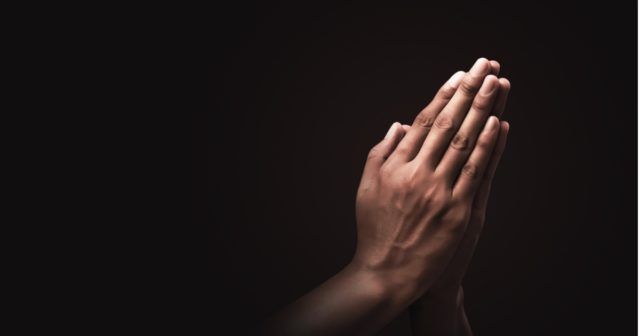By Fr. Mark Neary
The Valley Catholic – April 14, 2020
During this time of the new Coronavirus—a global illness to which you and I may lose family and friends, I have found comfort in a saying of St. John Chrysostom:
They whom we love and lose
are no longer where they were before.
They are now wherever we are.
Along the journey of these past twenty-one years I have lost family and friends. I have lost a good deal. I do not have the life of priestly ministry and I do not have the public life that brought many good friendships my way, so I reframed my life and I live like a monk. The ability to adapt and reframe my day, as well as my understanding of myself living the day I have, has gone a long way in the self-help work that makes me feel life as I know it is worth it.
How did it begin?
I fell! All I did was fall down. I was presiding at a wedding, something that as a priest I did on many Saturdays in church, and I fell.
Twenty-one years ago, I suffered a spinal cord brain injury, and everything about my life changed forever. From the moment I hit the floor of the sanctuary, I was immediately in pain, and even now I remain in a condition of ongoing debilitating physical pain. After surgery and hospital stay, I was moved to a nursing home. I have been in and out of many hospitals and nursing homes since.
After the fall, I was not able to celebrate the Eucharist; I could not pray the prayer that had become an everyday part of my life. So what did I do when I could not celebrate the Eucharist? I discovered my memory, which gave me not only the prayer of the Eucharist, but also my body’s memory of aligned motion encouraged by muscle memory. Gradually, with the coaching of professional physical therapist, that memory gave me the movements of rolling over, crawling, standing and walking. I can do it most days and, yes, there have been setbacks and some of the losses, but the overall experience is one of progress and the slow return of physical abilities.
Now, during this time of social distancing, you and I cannot go to Church to pray, to celebrate the Mass.
The Eucharist, following the command of Jesus, is a prayer of memory: “Do this in memory of me!” I am almost 70 years old, so I remember when I was in grammar school that the Mass was prayed in Latin. The opening lines of the Mass were, “Introibo ad altare Dei. Ad Deum qui laetifcat iuventutem meam.” The English translation is, “I will go unto the altar of God, to God who gives joy to my youth.” Now that I am older and I find life in an injured body, I look back on the person that I was – who existed before the injury, and I try to bring what was then to the present now, so that I can have it back, knowing that my life will not ever be as it was, but that with the Lord I can make it better than it is. The Eucharist brings the good and the grace of the past to the present and becomes a prayer of hope – hope that right now and then every moment after, we might have the same experience of Jesus that his disciples had, the possibility of making the present moment and the future better.
My work of physical recovery and my work to have a felt sense of the experience of the presence of God in my life has been enabled by my imagination. I do not mean make-believe, rather, the creative act of having in my mind’s eye an image of what I hope the next moment will be and then, with God’s grace, working myself to make it happen. If I can imagine a physical movement, I can work myself to the ability of performing it. If I can see my right leg and foot making the forward motion that will give me my next step in my mind’s eye, then I can get my right leg and foot to make the motion. I have done it. It works well. I trust that God is love and, in praying, I find myself moving toward God and God moving toward me, even if I cannot feel it happening. It does happen – in a sense we are all in the same boat on a sea larger than the Sea of Galilee.
The physical process of healing my body and the role that memory played in the work of recovery is similar to the experience of being at prayer. Both require the cultivation of an intention. Although today, I cannot go to Church to celebrate the Eucharist, I can pray.
Long before I was injured, I introduced gatherings with the following personal phrase, which became my prayer. When I suffered my life-changing fall and injuries, I often prayed it:
Remember! Whenever you are remembering you are praying
And whenever you are praying
You are not alone!
So, perhaps like me, when you are remembering, you are praying. And when you are praying, you are not alone. I am not alone, for everyone I have lost is always with me, and in the moment of prayer, God is with me. We can’t go to Mass together these days, we may not have anyone to be right next to us as we are praying at home, and yet we are not alone.
———
Fr. Mark Neary was pastor of St. Cyprian Parish, Sunnyvale (1996-2000) before his retirement.

